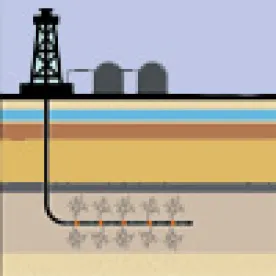On June 21, 2016, District Court Judge Scott Skavdahl issued an order to overturn certain aspects of the U.S. Bureau of Land Management's (“BLM”) rules governing hydraulic fracturing on federal and Indian lands. In March 2015, the BLM issued new rules focused on wellbore construction, chemical disclosures, and water management—each of which is already subject to a comprehensive regulatory framework under existing federal and/or state law. In response to the rules, states and several industry groups filed suit, and in September 2015, Judge Skavdahl put a temporary hold on their enforcement pending the conclusion of the lawsuit.
Issued to address “concern[s] about whether fracturing can lead to or cause contamination in underground water sources,” and “increased calls for stronger regulation and safety protocols,” the BLM aimed to implement “additional regulatory effort and oversight." Specifically, the stated focus of the new rules was to (i) provide disclosure to the public of chemicals used in hydraulic fracturing, (ii) strengthen regulations related to well-bore integrity, and (iii) address issues related to water produced during oil and gas operations.
At issue was the BLM’s ability to regulate hydraulic fracturing on federal and Indian lands within the scope of its congressional authority. While the BLM sought a foundation for such power under an array of federal statutes, Justice Skavdahl ruled that no law provides the BLM with specific authority to regulate fracturing or underground injections of any kind. Rather, the court found the rules to be an attempted “end run,” making clear that agency regulation of any activity “must be by Congressional authority, not by administrative fiat.” Because Congress has not expressly delegated authority to the Department of the Interior to regulate fracturing, Judge Skavdahl held that the BLM rulemaking was “in excess of its statutory authority and contrary to law.”




 />i
/>i
